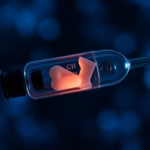Today we will be talking about antifungal soap and its role in managing yeast infections. Yeast infections, often caused by an overgrowth of a fungus known as Candida, can lead to uncomfortable symptoms such as itching, burning, and discharge. These infections can occur in various parts of the body, including the vaginal area, mouth, and skin folds. Maintaining a healthy balance of bacteria and fungi in the body is crucial to prevent yeast infections. When this balance is disrupted, conditions can arise that lead to infections. Antifungal soaps are often recommended to help manage and prevent these infections, providing a topical solution that targets the fungi responsible for the discomfort. By understanding the nature of yeast infections and the role that antifungal soap can play, individuals can take proactive measures to ensure their health and comfort.
What Is a Yeast Infection?
A yeast infection, primarily caused by the Candida species, is an overgrowth of yeast within the body’s natural flora. While Candida is typically present in minor amounts in the body, factors such as hormonal changes, antibiotic use, and compromised immune systems can lead to an imbalance. This imbalance results in symptoms that can be uncomfortable and even painful. Commonly, yeast infections are associated with women; however, men and children can also experience these infections. Symptoms typically include itching, burning sensations, and discharge that may vary in appearance. Understanding yeast infections is essential in terms of prevention and treatment.
Understanding Antifungal Soap
Antifungal soap is designed to combat fungal infections on the skin. Including ingredients that target fungi effectively, these soaps create an environment that inhibits yeast growth on the skin’s surface. The use of antifungal soaps is beneficial for areas prone to moisture, such as the groin, underarms, and feet, where yeast can thrive. Regular use of antifungal soap can help keep such areas clean and minimize the risk of infections reoccurring. This soap can be purchased over-the-counter and is often recommended for individuals who are prone to yeast infections, including those with diabetes or weakened immune systems. The goal of antifungal soap is not only to treat existing infections but also to serve as a preventive measure.
The Importance of Maintaining Skin Hygiene
Maintaining skin hygiene plays a crucial role in preventing yeast infections. Good hygiene habits help to remove excess moisture and dead skin cells that could create an inviting environment for yeast. Regular bathing, especially in areas prone to sweating and moisture, can prevent the overgrowth of Candida. Antifungal soap can be used in conjunction with regular soap to keep skin clean and limits the risk of infection. It is essential to dry areas thoroughly after bathing, as moisture can encourage yeast to thrive. For those especially prone to infections, ensuring proper hygiene after workouts or sweating can safeguard against outbreaks.
How Antifungal Soap Works
Antifungal soap works by incorporating antifungal compounds that disrupt the cell membranes of fungi, leading to their death. Common active ingredients in antifungal soaps include climbazole, ketoconazole, and tea tree oil. These ingredients target the fungal cells, breaking down their structure and preventing them from multiplying. When used consistently, antifungal soap can disrupt the lifecycle of fungi, effectively cutting down the chances of developing a yeast infection. Users can apply antifungal soap as part of their regular bathing routine, focusing on areas that are more susceptible to these infections to maximize its effectiveness.
Who Can Benefit from Antifungal Soap?
While anyone can use antifungal soap, specific groups may benefit more significantly from its use. Women who frequently experience yeast infections, individuals with diabetes, and those with compromised immune systems are more susceptible to fungal infections. Furthermore, athletes who engage in physical activities that cause excessive sweating may find antifungal soap particularly beneficial since yeast thrives in moist environments. Individuals living in humid climates should also consider antifungal soap as a preventive measure against yeast infections. By incorporating antifungal soap into their hygiene routine, these individuals can help maintain a balanced environment on their skin.
Potential Side Effects of Antifungal Soap
While antifungal soaps are generally safe for use, some people may experience mild side effects. Skin irritation, redness, and dryness can occur, primarily due to the active ingredients in these soaps. It’s essential for users to understand their skin type and reaction to specific ingredients, as some antifungal compounds can be harsh. Individuals should perform a patch test before fully incorporating antifungal soap into their routine, especially if they have sensitive skin. Discontinuing use and consulting a healthcare professional can help address any adverse reactions that may arise.
How to Choose the Right Antifungal Soap
Choosing the right antifungal soap is crucial to effectively combatting yeast infections. When shopping for antifungal soap, individuals should consider the active ingredients, ensuring they select one that targets Candida and is suitable for their skin type. Look out for products that have been dermatologically tested and have good reviews regarding their efficacy. Natural antifungal soaps containing ingredients like tea tree oil and eucalyptus can provide a gentler alternative and may appeal those seeking organic options. Additionally, checking for hypoallergenic or fragrance-free formulations can be beneficial for those with sensitive skin.
Complementary Practices to Enhance Effectiveness
Using antifungal soap alone may not be sufficient to combat yeast infections. Complementary practices such as wearing breathable clothing made from natural fibers, maintaining a healthy diet, and avoiding douching or using perfumed intimate products can further improve skin health. Probiotic intake can also support the body’s natural flora, helping to keep Candida levels in check. Staying hydrated and managing stress levels can play a significant role in maintaining overall health, including skin integrity and the immune system’s functioning.
When to Consult a Healthcare Professional
If you experience persistent yeast infections or find that antifungal soap does not provide relief, it is essential to consult a healthcare professional. Persistent infections may signal underlying health issues, such as hormonal imbalances or immunity concerns. Healthcare providers can offer personalized treatment plans, recommend stronger antifungal medications, or investigate potential underlying causes. Those with recurrent infections should keep a detailed record of their symptoms, treatments attempted, and intervals between infections to facilitate more effective discussions with their healthcare provider.
Final Thoughts on Antifungal Soap and Yeast Infections
Antifungal soap serves as a helpful addition to maintaining skin hygiene and managing yeast infections. By utilizing antifungal soaps, individuals may minimize their risk of developing these uncomfortable infections while promoting a healthier skin environment. However, it is essential to remember that antifungal soaps are most effective when paired with healthy hygiene practices and lifestyle modifications aimed at supporting overall well-being. Should concerns persist or arise, seeking guidance from a healthcare professional is the best course of action for tailored advice and treatment.
**Frequently Asked Questions**
- Can antifungal soap cure a yeast infection?
While antifungal soap can help manage and prevent yeast infections, it should not be solely relied upon to cure an existing infection. Consult a healthcare professional for diagnosis and treatment options. - How often should I use antifungal soap?
Usage may vary by product; however, most antifungal soaps can be used daily as part of your hygiene routine. Check the label for specific directions. - Can antifungal soap be used on sensitive areas of the body?
Antifungal soaps can be safe for sensitive areas, but it’s best to check the ingredients and conduct a patch test for any adverse reactions. - Are there natural alternatives to antifungal soap?
Yes, natural antifungal alternatives exist, such as tea tree oil or coconut oil, but always test these substances on a small skin area first and consult a healthcare provider if in doubt. - What else can I do to prevent yeast infections?
Maintaining good hygiene, wearing breathable clothing, consuming probiotics, and managing stress can all contribute to preventing yeast infections.
Further Reading
3.5 tog sleeping bag temperature guide
What Type of Psychotherapy Is Best for Anxiety?







